Nestlé Vietnam strengthens collaborations in sustainable agriculture
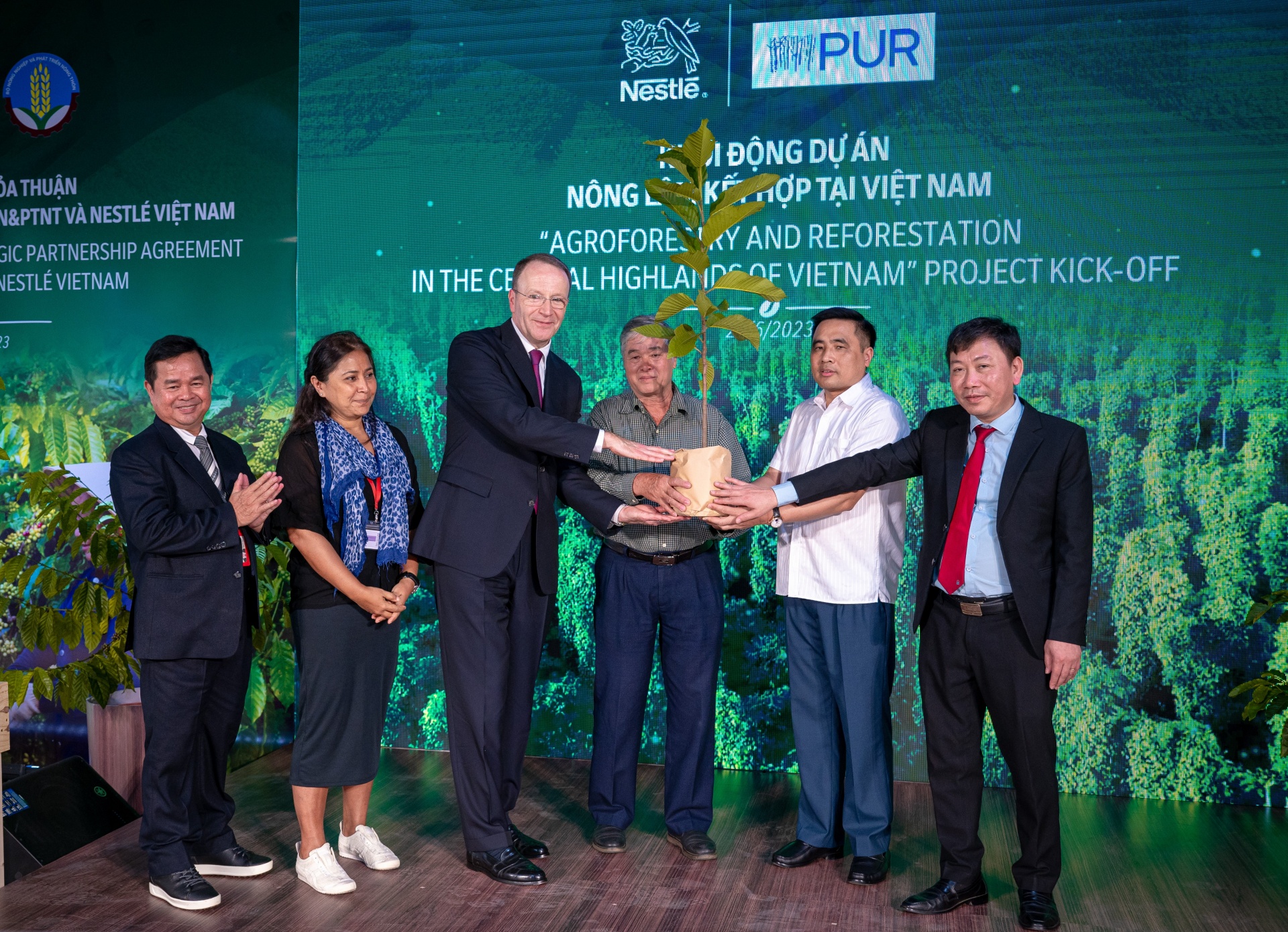 |
The partnership’s initiatives and activities will be implemented through the Partnership for Sustainable Agriculture in Vietnam (PSAV), currently chaired by the MARD and co-chaired by Nestlé Vietnam.
Within the framework of the collaboration, Nestlé Vietnam will work with the MARD to share and advance regenerative farming practices among coffee farmers. These practices will help reduce CO2 emissions and improve the resilience of farms to climate change. The company will share technology, research, and digital capabilities with the MARD and with farmers, and will further enhance multi-stakeholder cooperation in the sector.
The agreement was reached during an official meeting between Deputy Minister of Agriculture and Rural Development Nguyen Quoc Tri and Ulf Mark Schneider, chief executive of Nestlé S.A. “We want to transition to an ecological, low-emission agriculture model to help Vietnam achieve its net-zero goal,” said Tri.
“Strengthening the public-private partnership with businesses that are at the forefront of sustainability will contribute to more sustainable and climate-resilient agriculture in Vietnam,” he added.
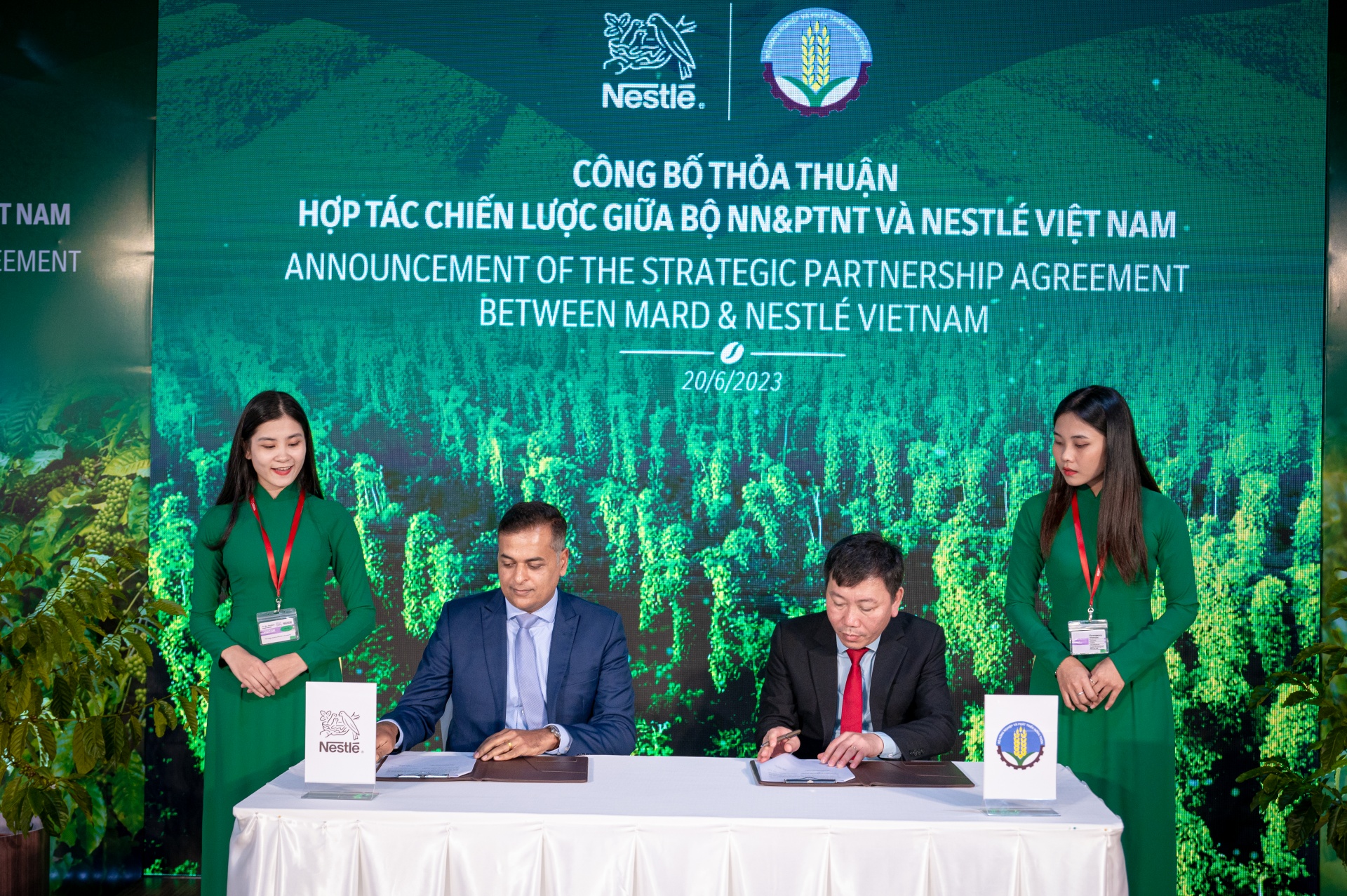 |
As part of the meeting, Schneider and Tri kicked off an agroforestry and reforestation project in the Central Highlands of Vietnam. The project aims to plant and grow over 2.3 million forest and fruit trees on the coffee farms of the Central Highlands of Vietnam by 2027. It is estimated that these trees will sequester 480,000 tonnes of CO2 over a 5-year period.
This initiative will help provide additional and more stable income to farmers and improve coffee-farm productivity in the long term. It will make farms more resistant to pests as well as to climatic hazards, including droughts and heavy rains, and will improve soil quality and biodiversity.
“Agriculture within our supply chains accounts for more than two-thirds of our total greenhouse gas emissions,” said Schneider. “As one of our key coffee sourcing origins, Vietnam is a major priority for us. We are committed to helping coffee farmers in the country transition to regenerative agriculture to improve livelihoods and address climate change through our Nescafé Plan. We are also working to restore Vietnam’s forests and natural ecosystems.”
Nestlé aims to plant 200 million trees within its sourcing landscapes globally by 2030. The company’s reforestation scheme is a key part of its Net Zero Roadmap.
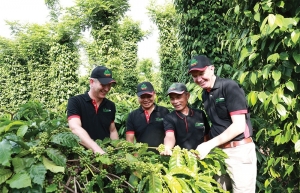 | Nestlé’s long-term goals to support Vietnam’s regenerative agriculture Since climate change has become a major threat to agriculture, Nestlé is aiming to become a net-zero company and accelerating the move towards regenerative food systems at scale. David Rennie, deputy executive vice president and head of Nestlé Coffee Brands and Philipp Navratil, SVP and head of Coffee Strategic Business Unit at Nestlé S.A., shared with VIR’s Mai Van the group’s regenerative agriculture approach and its importance for Nestlé’s roadmap. |
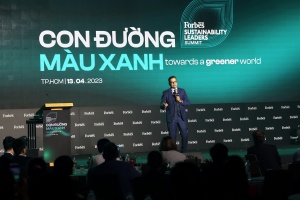 | Nestlé Vietnam promotes the circular economy model On April 13, the 2023 Sustainable Development Conference brought together experts and representatives of industry leaders in Vietnam. These included Binu Jacob, general director of Nestlé Vietnam, who shared his belief that environmental pollution and resource depletion are disrupting the natural regeneration cycle and causing climate change. |
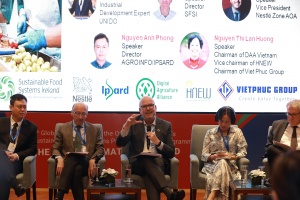 | Nestlé drives Vietnam's transition to sustainable food system Nestlé has extensive experience in developing agricultural economic clusters to promote a sustainable food system. |
What the stars mean:
★ Poor ★ ★ Promising ★★★ Good ★★★★ Very good ★★★★★ Exceptional
 Tag:
Tag:
Related Contents
Latest News
More News
- Trung Nam-Sideros River consortium wins bid for LNG venture (January 30, 2026 | 11:16)
- Vietnam moves towards market-based fuel management with E10 rollout (January 30, 2026 | 11:10)
- Envision Energy, REE Group partner on 128MW wind projects (January 30, 2026 | 10:58)
- Vingroup consults on carbon credits for electric vehicle charging network (January 28, 2026 | 11:04)
- Bac Ai Pumped Storage Hydropower Plant to enter peak construction phase (January 27, 2026 | 08:00)
- ASEAN could scale up sustainable aviation fuel by 2050 (January 24, 2026 | 10:19)
- 64,000 hectares of sea allocated for offshore wind surveys (January 22, 2026 | 20:23)
- EVN secures financing for Quang Trach II LNG power plant (January 17, 2026 | 15:55)
- PC1 teams up with DENZAI on regional wind projects (January 16, 2026 | 21:18)
- Innovation and ESG practices drive green transition in the digital era (January 16, 2026 | 16:51)






















 Mobile Version
Mobile Version